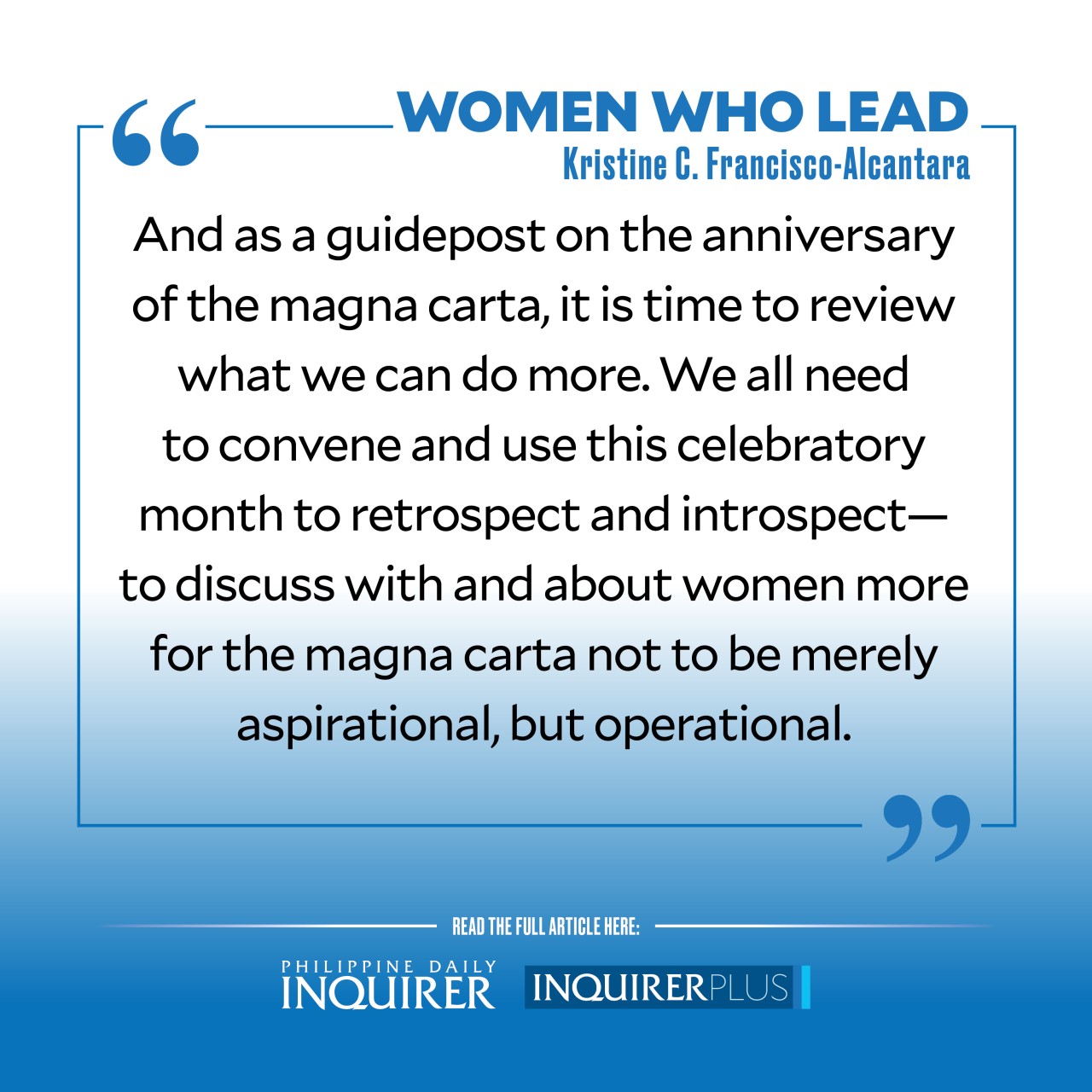Thirteen years of the magna carta of women

On Aug. 14, 2009, Republic Act No. 9710 or the Magna Carta of Women was signed into law by no less than President Gloria Macapagal Arroyo, a female president. A law 10 years and three congresses in the making, the magna carta’s passage remains invaluable as the first sovereign guarantee that the Philippines commits itself to advancing the rights of women in the Philippines. It also operates as the local law from which the provisions of the Convention on the Elimination of All Forms of Discrimination Against Women can be implemented.
Thirteen years hence, has the magna carta leveled the playing field for women? Or has its implementation been of face value—more fair of face than fair in the home or business space?
Article continues after this advertisementA textual analysis of the magna carta shows that the law guarantees the protection of women from all forms of violence, and with this, the law enforcement pillars of the Philippines have established gender or violence against women desks. Protection in times of disaster, calamities, and other crisis situations has also been a priority of the Philippine government since the passage of the magna carta. Special attention to women’s vulnerability and safety during calamities and when displaced has gone a long way in ensuring women have sufficient security in all phases of relief, recovery, and rehabilitation efforts. Participation and representation in civil service. Policy planning bodies now provide for the inclusion of women representatives.
At the heart of all of these initiatives is the Philippine Commission on Women (PCW), which leads the national gender mainstreaming strategy. In the last decade, the PCW has (1) provided capacity-building support for gender and development (GAD) programs; (2) pushed for the acceptance of more gender-responsive development assistance projects; (3) enhanced existing implementing tools and mechanisms for the development and implementation of GAD plans and programs; and (4) steered for the inclusion of gender perspective in policy planning.
However, much work remains, and in order to deepen the Philippines’ commitment to remove gender inequalities, the following systemic changes need to be made:
Article continues after this advertisementPhilippine rape laws should be amended to remove the forgiveness clause.
The Family Code of the Philippines needs to be updated. The law’s continued grant of preference to the father or husband on consent to marriages, administration and enjoyment of community property, disagreements, and legal guardianship only serves an archaic system that no longer fits today’s more equitable households.
The criminal provisions on adultery and concubinage need to be revised.
The recent passage of RA 11210 or the Extended Maternity Leave Law and RA 11313 or the Safe Spaces Act, led also by the PCW, are laudable changes in the right direction. If the Philippines is, indeed, committed to truly eliminate discrimination, providing flexibility and security in the workplace goes a long way in ensuring that women stay and thrive in their jobs.
Perhaps, and as a guidepost on the anniversary of the magna carta, it is time to review what we can do more. We all need to convene and use this celebratory month to retrospect and introspect—to discuss with and about women more for the magna carta not to be merely aspirational, but operational.
——————
Kristine C. Francisco-Alcantara is managing partner of Abad Alcantara and Associates and program officer of PhilWEN and Oxfam’s GRAISEA Project.
——————
Women Who Lead is an initiative of PhilWEN.















